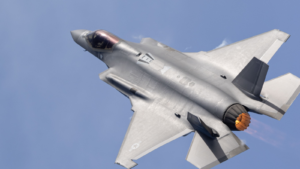
Space stocks are struggling on the heels of 2021’s atmospheric exuberance, and many once-vaunted companies are falling back to Earth. Broadly, space stocks returned a paltry 5% since January, compared to the Standards and Practices 500’s 15% jump.
But space remains a viable long-term play for investors critically evaluating prospects without getting caught up in overblown hype. Barron’s estimates the space industry could be a $1 trillion business. Other, albeit more optimistic, estimates peg operational space applications like inter-earth and moon activities flying as high as $10 trillion by 2050.
No matter the bottom-line numbers, space-based companies have a clear and definitive future ahead of them. However, investors seeking opportunity in space would do well to examine and evaluate fundamentals like they would for any prospective investment. These three space stocks combine viable long-term opportunities with solid grounding today, and represent the best of the space stock industry.
Lockheed Martin (LMT)

Lockheed Martin (NYSE:LMT) is undoubtedly one of the “safest” and most reliable space-themed stocks on the market. A broad-based defense stock emphasizing aerospace, Lockheed Martin is sufficiently diversified to protect against sector-specific turbulence. At the same time, it’s large enough to capture much of the cash funneling into space programs and projects.
Value and income investors will find a compelling proposition in Lockheed Martin. First, Lockheed Martin maintained and increased its dividend distribution for the past 20 years, and is a strong candidate to achieve dividend aristocracy status. Yielding a bit below 3% today, the income isn’t massive. Still, its sustainable and indicates a healthy sense of financial management at Lockheed’s upper levels.
Likewise, Lockheed’s space segment isn’t massive but steadily growing. In July, the company’s quarterly report indicated that, of its four business segments, about 20% of revenue came from space. However, its space successes are growing, and Lockheed increased space-based profitability by almost 50% compared to last year. Lockheed is still stacking space wins, including a $1.5 billion joint contract with Northrop Grumman (NYSE:NOC) for satellite production and a $122 million space vehicle support contract.
Rocket Lab (RKLB)

Rocket Lab’s (NASDAQ:RKLB) may not go stratospheric anytime soon, but the company remains a viable space play. A growth stock more mature, and proven, than its competitors, Rocket Lab consistently hits analysts’ expectations for solid, sustainable growth.
The company’s recent quarterly report indicated 12% year-over-year revenue growth and a $40 million contract backlog jump. Critically, in the same report, Rocket Lab revealed its technical outlook is brighter than expected. The company’s upcoming Neutron rocket project is nearing completion amid structural tweaks that improve launching economics by achieving post-launch barge landings (like SpaceX did nearly a decade ago). At the same time, Rocket Lab added 10 new launch orders for the year, including corporate and government contracts.
Critically, the company is expanding its offerings into hypersonic flight via modified rockets dubbed HASTE. Hypersonic flight is many aerospace engineers’ white whale. The industry is marked with the gravestones of defunct companies like Concord seeking affordable and safe hypersonic commercial flight. However, Rocket Labs is modifying existing tech, rather than prototyping and testing new platforms. This retrofitting means the company stands a better financial chance than many startups sinking cash into ill-fated research and development.
Iridium Communications (IRDM)

Iridium Communications (NASDAQ:IRDM) is a clear space stock winner, coming out ahead of its competition in the Trefis Space Stock Index with a massive 400% return since 2017. By comparison, second place winner Aerojet Rocketdyne (owned, as of July, by L3 Harris [NYSE:LHX]) hit 150% throughout the same period, and Lockheed Martin returned a comparatively slim 76%.
Despite the whopping gains, this small-cap space stock is capturing institutional attention. At the beginning of the month, Barclays PLC (NYSE:BCS) increased its Iridium holdings by 85%, making its net investment north of $6.5 million. At the same time, Barclays’ research wing pinned Iridium’s fair value price at $66.00 per share. That’s almost 40% higher than today’s pricing, indicating there’s still room for this space stock to run.
In addition to growth gains, company management rewards investors through a robust buyback program that recently jumped by another $400 million in approved repurchase funding. Investors today, nervous and seeking stable profit over skyhigh growth, would nevertheless do well to consider adding Iridium to their space stock portfolio.
On the date of publication, Jeremy Flint held no positions in the securities mentioned. The opinions expressed in this article are those of the writer, subject to the InvestorPlace.com Publishing Guidelines.




